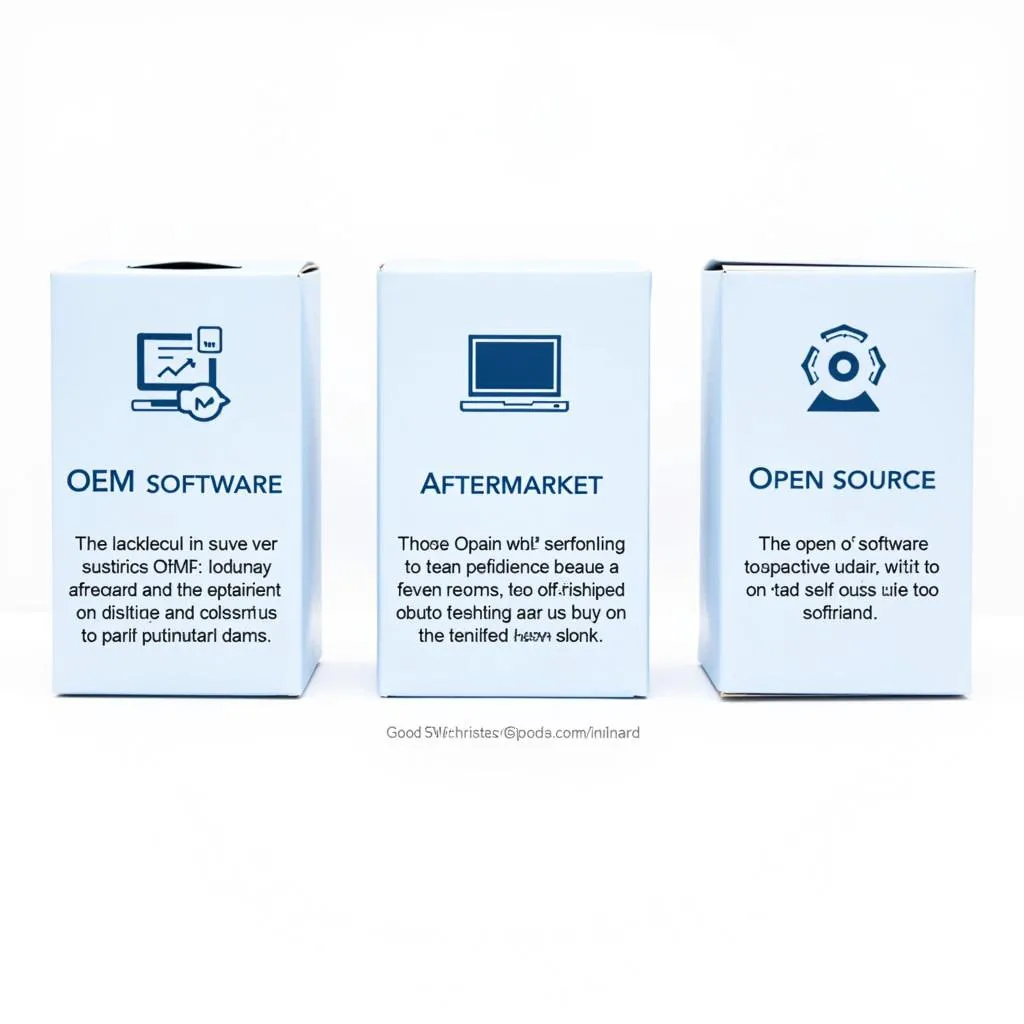Vehicle reprogramming software is essential for updating, modifying, and optimizing a vehicle’s electronic control units (ECUs). These ECUs are responsible for managing a wide range of functions, from engine performance to safety features. As technology advances, vehicle reprogramming software has become increasingly sophisticated, allowing for more precise and complex adjustments.
 Vehicle Reprogramming Software in Action
Vehicle Reprogramming Software in Action
Understanding Vehicle Reprogramming Software
Vehicle reprogramming software acts as a bridge between a computer and a vehicle’s ECUs. It allows technicians and automotive professionals to access the ECU’s firmware, which contains the instructions that govern its operation.
How Does Vehicle Reprogramming Software Work?
The process typically involves connecting a vehicle programmer to the vehicle’s OBD-II port, which serves as a communication gateway to the ECUs. The software then communicates with the ECU, reading its existing firmware and uploading new software updates or modifications.
Benefits of Using Vehicle Reprogramming Software
- Enhanced Vehicle Performance: Reprogramming can optimize engine parameters, transmission shift points, and other settings to improve horsepower, torque, and fuel efficiency.
- Software Updates and Bug Fixes: Manufacturers often release software updates to address performance issues, improve compatibility with new hardware, and patch security vulnerabilities.
- Customization and Feature Activation: Reprogramming can unlock hidden features, adjust vehicle settings to personal preferences, and even enable aftermarket modifications.
Types of Vehicle Reprogramming Software
There are various types of vehicle reprogramming software available, each tailored to specific needs and user groups:
- OEM Software: Original equipment manufacturers (OEMs) develop their own software for use by dealerships and authorized service centers.
- Aftermarket Software: Third-party companies create aftermarket software that offers additional customization options and may be compatible with a wider range of vehicle makes and models.
- Open-Source Software: Open-source software provides a collaborative platform for developers and enthusiasts to create and share reprogramming tools and modifications.
Choosing the Right Vehicle Reprogramming Software
Selecting the appropriate software is crucial for ensuring compatibility and avoiding potential issues. Consider the following factors:
- Vehicle Compatibility: Ensure the software supports your specific vehicle make, model, and year.
- Features and Functionality: Different software options offer varying levels of customization, diagnostic capabilities, and supported modifications.
- Ease of Use: User-friendly interfaces, clear instructions, and comprehensive documentation can significantly simplify the reprogramming process.
 Different Types of Vehicle Reprogramming Software
Different Types of Vehicle Reprogramming Software
Applications of Vehicle Reprogramming Software
Vehicle reprogramming software finds applications across various automotive sectors:
- Dealerships and Repair Shops: Technicians utilize reprogramming software for routine software updates, ECU repairs, and addressing vehicle recalls.
- Performance Tuning: Enthusiasts and racing teams employ software to fine-tune engine parameters, optimize transmission shifting, and maximize vehicle performance.
- Fleet Management: Companies with large fleets can use reprogramming software to improve fuel efficiency, track vehicle diagnostics, and monitor driver behavior.
“Vehicle reprogramming software has revolutionized the way we diagnose, repair, and enhance vehicles,” says John Miller, a senior automotive engineer at a leading car manufacturer. “It allows us to address a wide range of issues and unlock the full potential of modern vehicles.”
Risks and Considerations
While vehicle reprogramming software offers numerous benefits, it’s essential to be aware of potential risks and take necessary precautions:
- Data Loss or Corruption: Improper reprogramming procedures can lead to data loss or corruption in the ECU, potentially affecting vehicle functionality.
- Warranty Concerns: Using unauthorized software or performing significant modifications may void the manufacturer’s warranty.
- Safety Risks: Altering critical safety systems without proper knowledge and expertise can compromise vehicle safety.
“It’s crucial to choose reputable software providers and seek assistance from qualified technicians when necessary,” advises Miller. “Rushing the process or using untested software can have serious consequences.”
Future Trends in Vehicle Reprogramming Software
The field of vehicle reprogramming software is constantly evolving, driven by advancements in automotive technology and connectivity.
- Over-the-Air Updates (OTA): OTA updates are becoming increasingly common, allowing manufacturers to remotely deliver software updates and bug fixes to vehicles wirelessly.
- Cloud-Based Reprogramming: Cloud-based platforms offer centralized access to software updates, diagnostic data, and collaborative tools for technicians and automotive professionals.
- Artificial Intelligence (AI): AI algorithms are being integrated into reprogramming software to automate tasks, improve diagnostic accuracy, and personalize vehicle settings based on driver behavior.
 Future of Vehicle Reprogramming Software
Future of Vehicle Reprogramming Software
Conclusion
Vehicle reprogramming software has become an indispensable tool in the automotive industry, enabling enhanced performance, improved diagnostics, and customized driving experiences. By understanding the different types of software, their applications, and potential risks, vehicle owners and professionals can leverage this technology to unlock the full potential of their vehicles. However, it’s essential to prioritize safety, choose reputable software providers, and seek expert assistance when necessary to ensure successful and reliable reprogramming outcomes.
FAQs
1. Is it legal to reprogram my vehicle’s ECU?
Reprogramming your vehicle’s ECU is generally legal, but certain modifications related to emissions and safety systems may be subject to regulations.
2. Can I revert my vehicle’s ECU to its factory settings after reprogramming?
Yes, in most cases, it’s possible to revert the ECU to its original factory settings using the appropriate software and procedures.
3. How often should I update my vehicle’s software?
It’s recommended to check for software updates according to the manufacturer’s recommendations, typically outlined in the owner’s manual or on the manufacturer’s website.
4. Can I reprogram my vehicle’s ECU myself?
While some individuals choose to reprogram their vehicles, it’s generally advised to seek assistance from qualified technicians who have the expertise and tools to perform the procedure safely and effectively.
5. What are the common signs that my vehicle might need an ECU reprogramming?
Common signs include warning lights on the dashboard, decreased performance, erratic engine behavior, and issues with electronic features.
If you have any questions or need assistance with computer diagnostic auto issues or ecm reprogramming tool, please don’t hesitate to contact us. We also offer insights on transmission reprogramming tool and other car auto diagnostic services.
For immediate support, reach out to us via WhatsApp: +1(641)206-8880, or Email: [email protected]. Our dedicated customer support team is available 24/7 to assist you. You can also visit us at 276 Reock St, City of Orange, NJ 07050, United States.